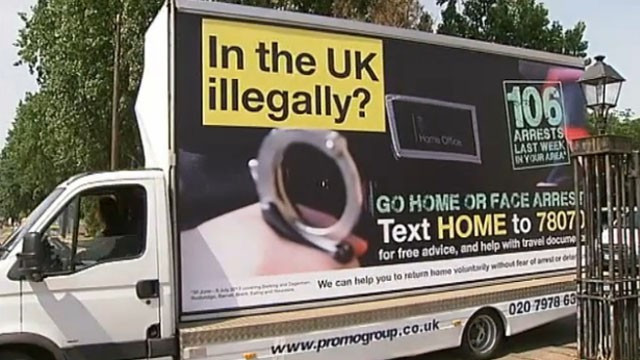UK Immigration Figures Could Be 35,000 Higher Than Thought, Say MPs

The true number of people entering and leaving Britain could be wildly at odds with the figures used by the government, MPs have warned, saying the actual figure could be 35,000 higher than previously thought.
The official figures were "not fit for purpose" and could not accurately assess rates of immigration or emigration, said the influential Public Accounts Committee.
David Cameron has pledged to reduce net immigration to Britain of non-EU nationals to less than 100,000 a year by 2015.
Immigration was estimated at 515,000 iIn the year to June 2012, while emigration was estimated at 352,000, putting net migration at 163,000.
But the committee warned that statistics were "blunt instruments" and were "not adequate for understanding the scale and complexity of modern migration flows".
The true figure could be an estimated 35,000 higher or lower than given, they said, describing the official migration figures as "little better than a best guess".
They recommended the Home Office and Office for National Statistics work more to collate their data, and urged the government to introduce its new e-border immigration system as quickly as possible.
Labour backed the committee, calling on the home secretary to examine how to improve the figures' accuracy "as a matter of urgency".
But the government rejected the committee's conclusions. It said net migration was at its lowest level for decades.
The committee criticised the principal body responsible for producing the figures, the International Passenger Survey (IPS).
Formed in the early 1960s to examine tourism trends, it bases its findings on "random interviews" with travellers at ports and airports.
Just 5,000 migrants a year were identified through the survey, which had a "large margin of error", the committee said.
Migration estimates based on the IPS were "too uncertain" to measure whether the government was meeting its net migration targets, the MPs said.
That left government unable to forecast the social and economic consequences of migration, such as demand for the NHS or schools.
Committee chairman Bernard Jenkin said: "Most people would be utterly astonished to learn that there is no attempt to count people as they enter or leave the UK.
"As an island nation, with professional statisticians and effective border controls, we could gain decent estimates of who exactly is coming into this country, where they come from, and why they are coming here.
"As it is, the top line numbers for the government's 100,000 net migration target are little better than a best guess - and could be out by tens of thousands."
Responding to the findings, a Home Office spokesman said: "We disagree with the report's conclusions. Government reforms on immigration are working and the statistics do show that net migration is at its lowest level for a decade.
"The government is determined to build a fairer system and to address the public's concern about immigration."
Business Secretary Vince Cable said the target to reduce net migration was "misleading" because it included visiting students who were "good for the country".
Cable said: "We're not a totalitarian state. We don't count every single person. The point about those numbers is it only really matters if you're pursuing some target.
"There's this net immigration figure, which the Conservatives are very preoccupied with, but it's not a government target."
© Copyright IBTimes 2025. All rights reserved.





















